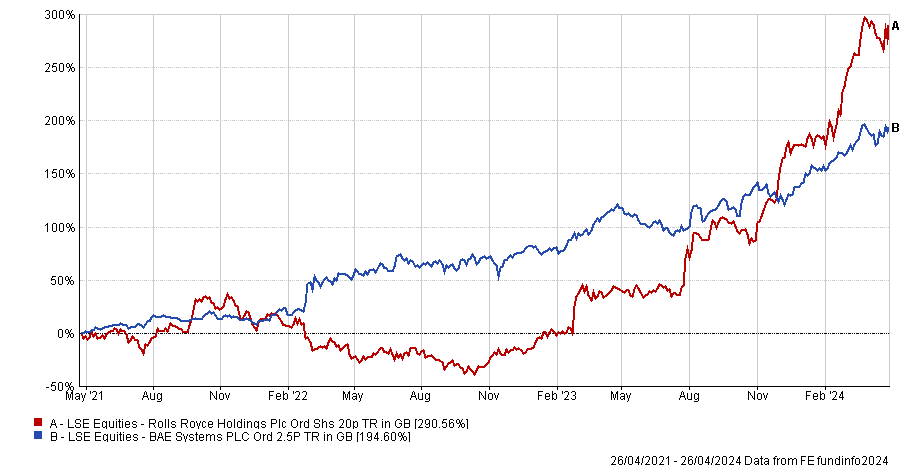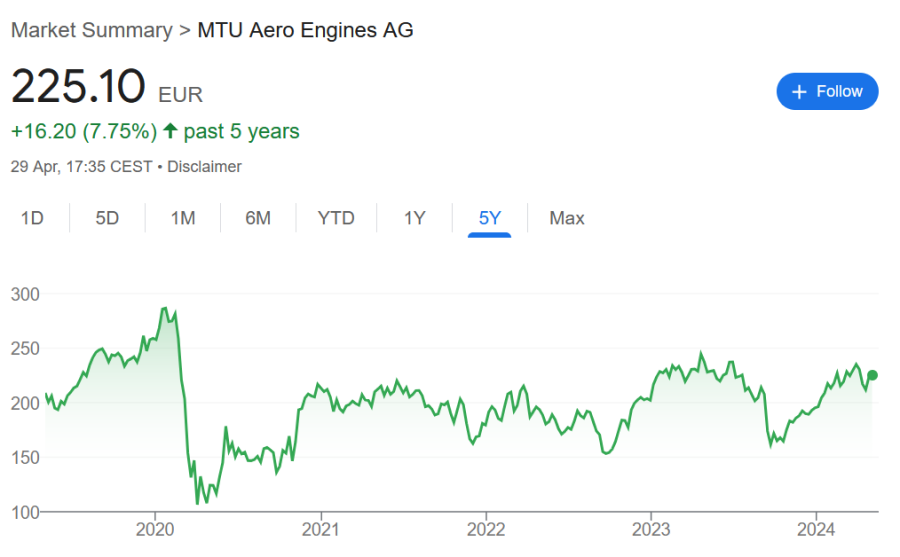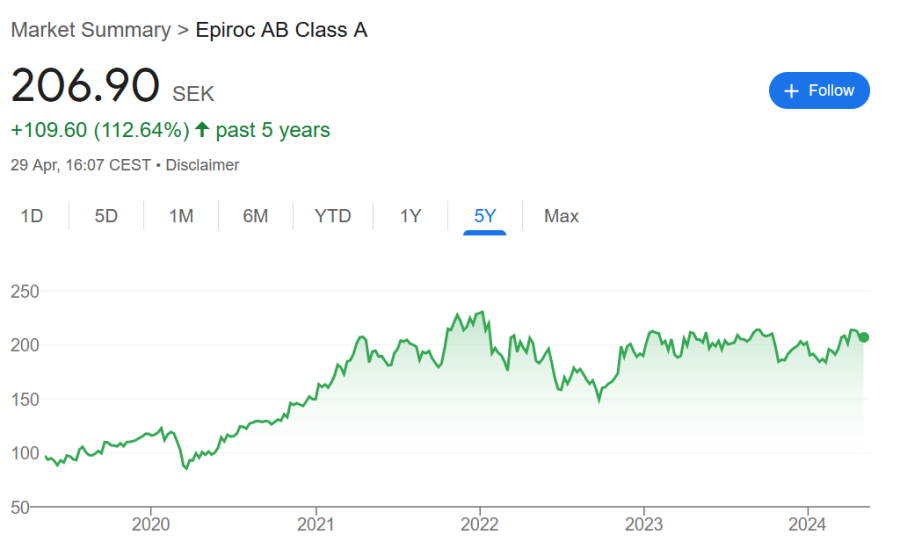The outbreak of the war in Ukraine has led European countries to reassess their spending on defence and investors to reappraise the pros and cons of defence stocks.
Some believe this could be one of the best investment themes for the long term, but with British defence stocks such as BAE Systems up 194.6% and Rolls Royce growing 290.6% over three years, this investment thematic might well be already on its way.
Performance of stocks over three years

Source: FE Analytics
However, the UK market might not be the right place to benefit from those increase defence spendings, according to Marcel Stötzel, co-portfolio manager of the Fidelity European fund.
One of the reasons is that the UK is already exceeding its NATO commitment to disburse at least 2% of its GDP to keep its military battle-ready. This is also true for France and as such Stötzel does not believe the UK and French defence stocks have much room to grow.
He also highlighted that UK defence companies are more exposed to the US, which he does not see increasing its military spending at the same rate as European countries.
Stötzel said: “The argument that European countries have not, in aggregate, spent 2% of GDP on defence as per NATO guidelines is clear. Some, like the UK and France, have, but others have spent way below that. Germany in particular is the European country that has the most catching up to do.
“The US is not going to see anywhere near that level of increase in defence spending. In my humble opinion, you want to be in and around Germany, because that’s the most obvious candidate for growth in that area.”
However, Germany-listed pure defence names, such as Rheinmetall and Hensoldt have already surged dramatically in recent years and command high multiples. For instance, Rheinmetall trades on a 42x price-to-earnings (P/E) ratio and Hensoldt on 73.7x.
Therefore, Stötzel is not sure whether those stocks are already fully valued or not. Instead, he and FE fundinfo Alpha Manager Sam Morse, have been looking at stocks that haven’t gone up as much yet to try to tap into this theme. This is the reason why they’ve recently added MTU Aero Engines in their portfolio.
Stötzel explained: “It is a German aerospace engine manufacturer, with defence accounting for 10% to 15% of its business.
“Obviously it's not as game changing as if it was a pure defence stock, but we actually like the business as a whole.”
Performance of stock over 5yrs

Source: Google Finance
Beyond defence, Stötzel and Morse have also been looking at the mining sector and introduced Epiroc – a Swedish manufacturer of mining and infrastructure equipment – in the portfolio.
Stötzel explained: “Epiroc makes deep underground mining excavators. If you think about the setup for mining in general, each incremental ounce of ore that comes out of the ground is harder to extract than the previous one.
“That has been a tailwind for Epiroc for many years because it’s becoming increasingly difficult for mining companies to extract ore from the ground. This tailwind is going to be turbocharged by the green transition, as we’re going to need much more lithium, copper and all kinds of different commodities going forward.
“Deep underground mines are the only way to get most of those. For that, you need either Epiroc or their main competitor Sandvik. They are in a duopoly.”
Performance of stock over 5yrs

Source: Google Finance
Epiroc will need to go green itself but Stötzel believes it will enable the company to become more profitable over the long term.
He explained: “Working one kilometre underground with a diesel digger is not great. You need big air filtration systems and it’s tough for your employees. On a 10-year view, Epiroc can go electric and that will be safer and cheaper.”
As a result, Stötzel believes the stock’s dividend could grow at a high single-digit or low double-digit rate over the next 10 years.





